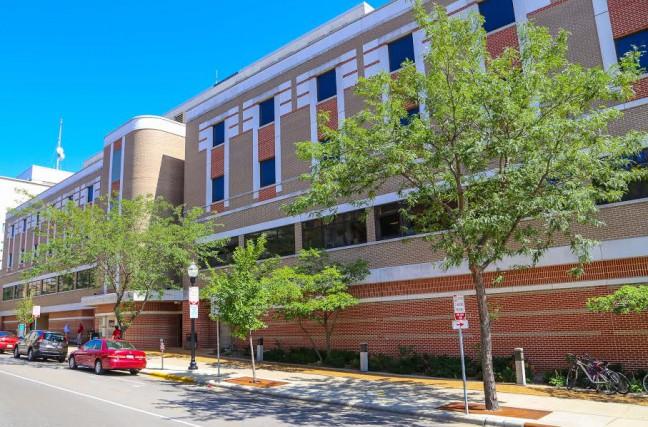The National Institute of Corrections selected Wisconsin for a statewide initiative to improve public safety through the application of research in the criminal justice decision-making process.
The concept behind the initiative is to challenge how local jurisdictions make decisions and develop programs that use evidence-based services designed to help public safety and reduce pretrial misconduct, Jeffrey Kremers, chief judge of the Milwaukee Circuit Court, said.
Wisconsin was one of three states selected for this initiative, along with Indiana and Virginia. In 2010, Milwaukee and Eau Claire counties were selected, along with seven other counties across the country, to participate in an early phase of this initiative. Six counties in Wisconsin were selected to continue this initiative.
Tiana Glenna, coordinator for Eau Claire County Criminal Justice Collaborating Council, said they want to build on projects being done at a local level and have impact on decisions made on the state level.
“We want to align that communication from the local jurisdictions to the state jurisdiction,” Glenna said.
Each county worked on a number of projects to help increase public safety. One of the projects Milwaukee has worked on is changing the bail release determination, Kremers said.
Instead of bail being set on the charge, it is set on the risk that the individual poses to create a new offense. Each individual is assigned a risk tool and bail is assigned based on that risk tool along with the offense, Kremers said.
“That way, hopefully, the people we are holding in our jail and awaiting trial are the ones who scare us, not the ones who aggravate us,” Kremers said.
Since the change in setting bail, Kremers said they have seen a reduction of people held in jails. He said this saves taxpayers money and with risk assessment, they are not negatively impacting public safety. Additionally, there are more people who are able to be productive members of the community while awaiting trial, Kremers said.
The next step of this initiative is to increase the number of local jurisdictions where these practices are being done, Glenna said. In the long run, she said they will work to figure out how to implement these projects on a statewide basis.
Kremers said it is important for the criminal justice system to continue evaluating the way it does things instead of sticking to the same formula.
“We can always do a better job at using the limited resources the public entrusts to us to maintain public safety,” Kremers said. “We need to be challenging ourselves continuously to make sure that we are being smart on crime.”


